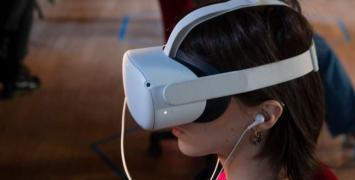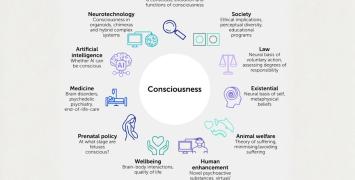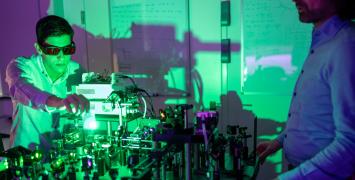Can algorithms steal elections?
The effect social media have on political discourse has been subject of intense discussion, especially since the UK referendum and US elections in 2016. A researcher funded by the European Research Council (ERC) is trying to shed light onto the ways politicians use online social networks and the murky world of political algorithms.

"The majority of young people these days get their political news over the social media," says Phil Howard, Professor of Internet Studies and ERC grantee at the Oxford Internet Institute. "It's very difficult to grow up without developing so political opinion that has been shaped by the content you see from your friends and family over a social network platform."
Social media offer a medium where everyone can express and distribute their views, changing the way we share and absorb information.
Watching this video you are accepting Youtube cookies policy
But for all the benefits these platforms bring, they do have their drawbacks. Professor Howard, who leads an ERC-funded research project on computation propaganda, studies how politicians manipulate people on internet. His team, consisting of IT experts and social scientists, specialises in the processes of using algorithms to deliver messages to large numbers of people over social media.
Algorithms and fake news go hand in hand
Hoaxes and misinformation cause harm because of the automatic distribution by social media bots. Automated political bots, unlike human beings, are able to disseminate information and opinions throughout the day quickly, strategically and without rest. They can influence public opinion and drive political agenda. "Algorithms and fake news go hand in hand," says Prof. Howard.
The team at Oxford Internet Institute has monitored three major votes in the UK, US and France and collected data from the weeks leading up to them. In a recently published paper they showed for example that French voters share less fake news than voters in the US or Germany.
The consequences of online misinformation are serious and spill over also outside politics, according to Professor Howard. For instance, the number of people who think climate change may not be so real is increasing, as the number of people who are not sure that tobacco causes cancer, explains Howard.
"In part this is because of very effective social media campaigns that erode the contributions of science. There are very important public health issues that are being impacted by the combination of fake news and social media."
In April 2017, Professor Howard received a top-up funding from the ERC through a Proof of Concept grant. Using the data his team has collected over the last few years, Howard's next project is to design an online tool that would allow social media users to evaluate the authenticity of suspicious social media accounts.






